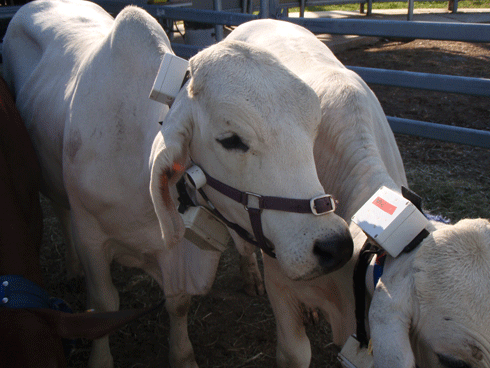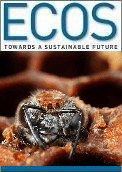
|
Published: 14 May 2012
Collaboration to more accurately assess livestock methane
Australian agriculture directly accounts for 10 per cent of the country’s overall greenhouse gas emissions and the launch of a major new research collaboration aims to reduce that impact.

|
|
Developing accurate methods for measuring cattle methane emissions will help inform government policy and beef production practice. Credit:
CSIRO
|
A team of scientists led by the University of Melbourne, with five other major Australian universities and researchers in Canada, are teaming up with the CSIRO’s Sustainable Agriculture Flagship to help address one of the key contributors – burping livestock.
The collaboration is called the Livestock Methane Research Cluster and was officially launched at the University of Melbourne this morning.
The Cluster aims to improve measurement and management of methane emissions for the grazing lands of northern Australia, thought to be responsible for five per cent of the country’s overall greenhouse gas emissions.
Professor Deli Chen, leader of the project from the University of Melbourne, said the Livestock Methane Research Cluster will be able to draw on the skills of world leading research institutes to more accurately measure methane emissions from livestock under real grazing conditions.
‘This is a critical step if we are to help agriculture reduce its emissions because if you can’t measure, you can’t mitigate,’ Professor Chen said.
CSIRO’s Research Project Leader, Dr Ed Charmley, said: ‘The Australian Government’s Clean Energy Act sets a long term goal of reducing greenhouse gas emissions by 80 per cent of 2000 levels by the year 2050. This research will help identify field–based measurement techniques and protocols that can support management actions and technologies that can help Australia meet such ambitious targets.’
‘We expect the Cluster will also develop science that supports methodology development for the Carbon Farming Initiative, an Australian Government program that enables farmers to earn ‘carbon credits’ for undertaking abatement activities on their properties,’ Dr Charmley said.
The Methane Research Cluster is a three year partnership funded by CSIRO’s Flagship Collaboration Fund in association with the organisation’s Sustainable Agriculture National Research Flagship.
The University of Melbourne leads the project with support from CSIRO. Other leading universities include Macquarie University, RMIT Victoria, University of New England, University of Western Australia, and University of Wollongong with further support from researchers at Agriculture and AgriFood Canada as well as the University of Alberta.
Source: CSIRO



